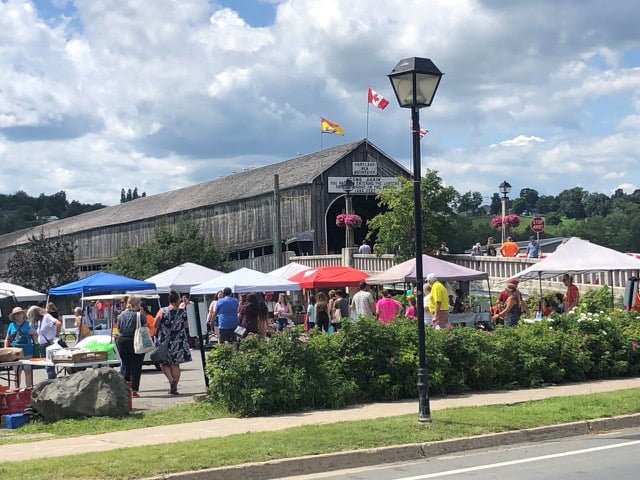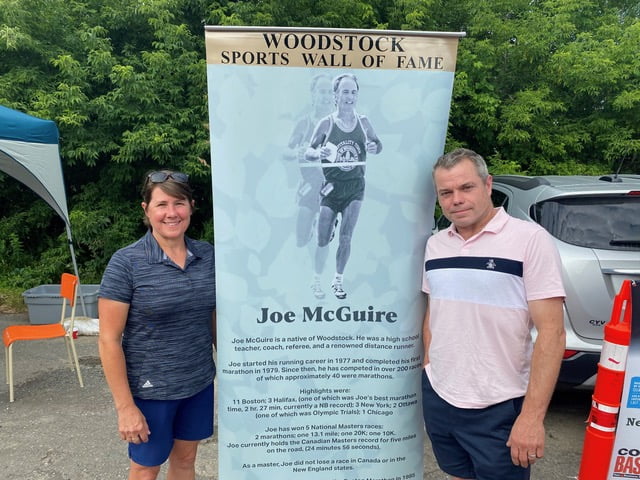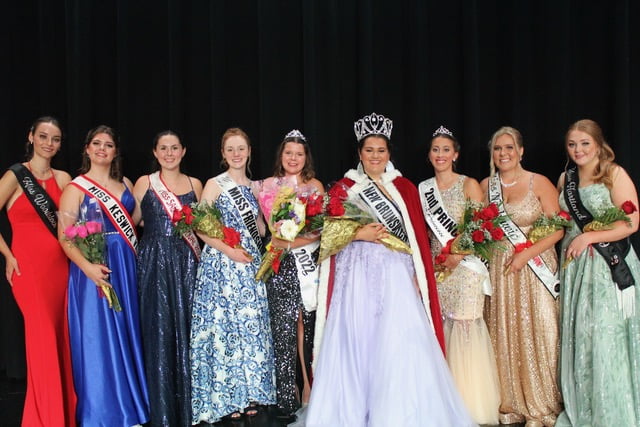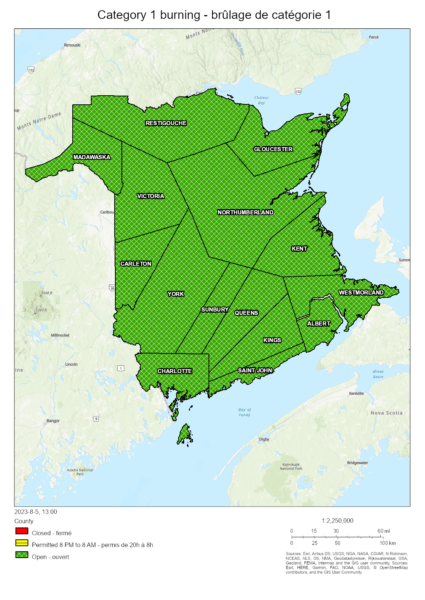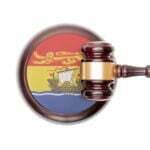‘To insinuate that anyone of us are homophobic or bigoted is hateful and unfounded’: Mayor Trina Jones
A frustrated Woodstock Mayor, Trina Jones, blamed the media and social media for the public backlash surrounding the town’s policy changes, leading to the discontinuation of displaying Pride banners in downtown Woodstock.
In a lengthy address during the April 30 regular council meeting, Jones accused the media of rushing to publish stories with or without all the facts.
She also criticized Rainbow Crosswalk Inc., a Woodstock-based organization supporting the area’s 2SLGBTQIA+ community, for attacking the new policy on social media rather than talking directly to the town.
Jones said the news media only showed interest in the issue after it blew up on social media.
Although she criticized the media for not reaching out to her after the issue of the Pride banners ignited on social media, Jones acknowledged she was unavailable for comment late last week.
After the River Valley Sun made several attempts to reach the mayor by phone, the town issued a statement late Friday afternoon, April 26, explaining the mayor could not be reached as she was travelling from northeastern New Brunswick.
During her address at the council meeting, Jones expressed reluctance to discuss the matter further with the press outside a scheduled in-depth interview.
“If any of the press are simply looking for a 30-second sound bite from me, please don’t contact me for a follow up on this,” she said.
She added she would not be available for a more extensive interview this week, listing several items on her busy schedule, including meetings about the town’s emergency well issues, crime prevention and Planet Youth events.
Jones also refused questions from the River Valley Sun and the CBC following the regular council meeting. Before the meeting began, Woodstock CAO Allan Walker denied CBC reporter Sam Farley the right to video the session, noting its availability live on YouTube. Jones also refused to allow a photo of her.
The mayor’s reluctance to field questions starkly contrasted with most meetings, during which she, councillors, and staff make themselves readily available after the meeting.
Rainbow Crosswalk Inc.’s founder and president, Amanda Lightbody, questioned the mayor’s surprise that they addressed the issue on social media, noting that’s how the organization’s members communicate.
Lightbody added that her group had made their views known, but the town didn’t seek their input.
She said Rainbow Crosswalk Inc. has no plans to push this issue further, saying they must choose their battles. Asked if that meant they were going to take the “high road,” Lightbody responded, “That’s the only road to take.”
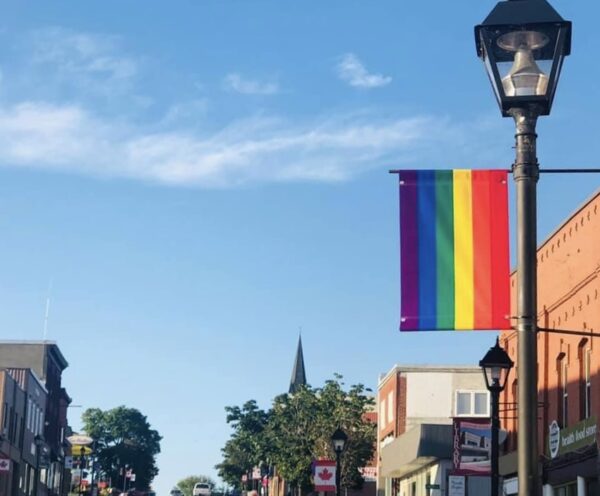
She said the town provided the banners to her group, and they are seeking communities, organizations or businesses willing to display them.
During her presentation at the council meeting, Jones stressed that the policy change, passed unanimously by the council, was not directed at Pride banners.
“The genesis of this policy had nothing to do with the Pride groups,” she said.
Jones said the decision to discontinue displaying the Pride banners resulted from a policy recommended by an ad hoc committee which strived for a “fair and consistent” approach to requests for council proclamations, special lighting, flags and banners.
“A neutral position was suggested by the ad hoc committee and accepted by council,” she said.
Jones described it as unfair to offer banners to “one group and not them all.”
She explained that a previous council had begun erecting the Pride banners several years ago after it realized rainbow crosswalks proved ineffective and costly.
With the battle against discrimination of gay and trans communities a hot topic at the time, council approved that decision through a motion in council, rather than through a bylaw or policy. As a result, any record of that decision would be found only in council minutes.
Jones said the narrative on social media that the current council directed its decision at Pride groups is wrong.
“To insinuate that anyone of us are homophobic or bigoted is hateful and unfounded,” she said.
Jones said the feedback on the Pride banner decision emphasizes a “very divisive issue with multiple sides to the debate.”
“I think it is important for us all to step back and try to determine why a flag that is meant to unify seems to be having the opposite effect and is creating a division in multiple ways,” she said.
Jones said the issue requires a broad discussion beyond a municipal council.
“Ultimately, our town is not defined by displaying Pride banners in our downtown core for a relatively short period of time during the year,” she said.
Describing Woodstock as a welcoming and generous community, Jones said the town’s actions demonstrate its ongoing support of minorities. She noted that it is home to almost 70 ethnicities. She said it is also home to a strong multicultural association and several groups supporting physical and intellectual disabilities.
“I caution anyone to think that simply flying a banner checks all the boxes and automatically makes us an inclusive community,” Jones said.
She said if a flag influenced the actions of community members, she’d fly banners saying “Be kind,” “Don’t do drugs,” “Don’t steal,” or “Be More Like Even.”
LIghtyear said flags or banners might not check all the boxes, but the downtown banners offered a visible indication that the community supported people like herself, who face widespread discrimination.
“It’s a welcome sign of inclusion,” she said.
When Jones invited council members to share their views following her presentation, only Coun. Norm Brown responded, directing his comments to the mayor.
“Well said,” he said.


